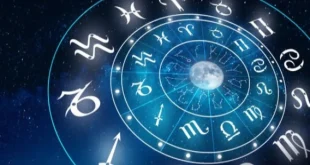
First general election: Lok Sabha elections are going to be held in the country shortly. Elections are held in the country every five years. India is known as the largest democratic country in the world. Elections were held for the first time in the country in 1951 and the same tradition is still going on in the country. As India heads towards the 18th Lok Sabha elections after 76 years of independence, let's take a look at the electoral journey of the world's largest and oldest democracy.
Country's first general election
The country's 18th Lok Sabha elections will be held this year. The term of the 17th Lok Sabha elections will end on 16 June 2024. If we talk about the first Lok Sabha election of India, it was held in the year 1951. Also, the first Lok Sabha was formed on 17 April 1952.
The first Lok Sabha elections were held in the year 1951. There were many challenges. At that time India's population was 35 crores, out of which about 85 percent were illiterate. There is no medium of communication that can reach people directly. Also there were no TVs and very few people had radios and very few newspapers were printed. Apart from this, there was no awareness about democracy among the people, because they had never seen democracy before. It was really challenging to conduct elections in such a situation.
Information given through various communication mediums
A film of the election process was made by the Election Commission to explain how and where to vote. The film was screened in over 30,000 theaters for free. Apart from this, All India Radio also organized many programs related to elections and the election process. Also, awareness was spread through advertisements in newspapers. At that time, 25 lakh steel ballot boxes and 180 tonnes of paper were used in the elections. At that time each party had separate ballot boxes. At that time the election cost Rs. 10 lakhs were spent.
85 percent people illiterate
At the time of the first Lok Sabha elections, the voting age was 21 years. In the first Lok Sabha elections, there were 17.3 crore voters and 45 percent voting took place. 53 political parties tried their luck on 489 seats. Congress became the largest party by winning 364 seats in the elections. The second highest number of seats was won by an independent candidate with 37 seats. Also Bharatiya Jana Sangh got 3 seats. Jawaharlal Nehru was elected Prime Minister and Leader of the House. At that time no one was formally elected leader of the House. The post of Leader of the House was recognized from the year 1969.
There has been a change in the electoral process
Earlier in the Lok Sabha elections, each candidate was given a different colored ballot box with his name and election symbol at the polling station. So that even illiterate people can vote easily. The first Lok Sabha elections were held in 68 phases. Whereas the 2019 Lok Sabha elections were completed in just 7 phases in 50 days.
Preventing voting fraud is also challenging
One of the challenges before the Election Commission was to stop the looting of ballot boxes and fake voting. Long lasting ink was used to prevent the same person from voting repeatedly. This ink, developed with the help of the National Physical Laboratory, was first used in the 1962 elections and remains the primary evidence of the voter's ballot paper even today.
Journey from ballot paper to EVM
The biggest change in the electoral process came in the late 1990s when electronic voting machines (EVMs) were introduced. Earlier, there used to be a lot of irregularities during voting through ballot paper. From looting of ballot boxes to rigging of voting by booth capturing, news raising questions on the election process made headlines every time. For the first time in 2004, EVMs completely replaced ballot paper. In the same year, elections to the Lok Sabha and state assemblies were conducted entirely through EVMs. Along with EVMs also came Water Verified Paper Audit (VVPAT). Through VVPAT, the voter comes to know whether his vote has gone to the right candidate or not. With this, rumors like EVM hacking have also been put to rest.
 look news india
look news india
